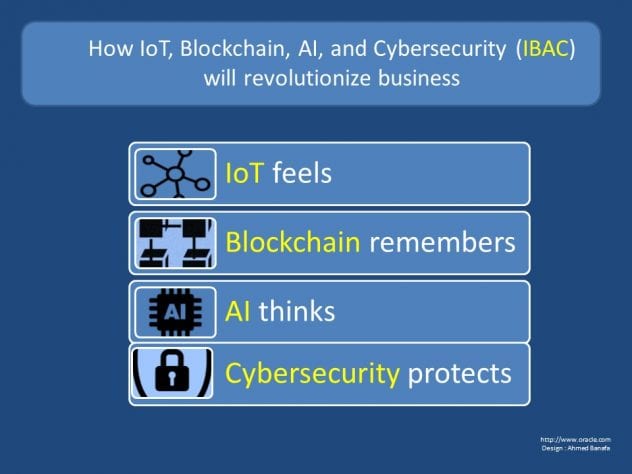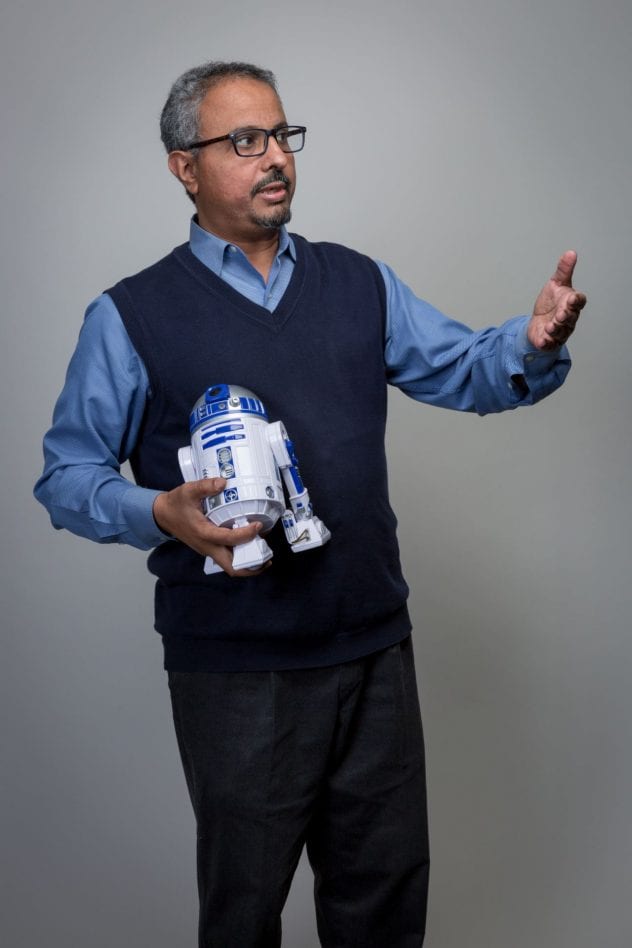National Engineers Week is February 17-23, with more than 70 engineering, education and cultural societies and more than 50 corporations and government agencies involved in events and activities to celebrate the profession and promote STEM education around the nation. Ranked #3 in the nation among public engineering programs offering bachelor’s and master’s degrees, according to U.S. News & World Report 2019, and a top contributor of talent to Silicon Valley, San Jose State University will be celebrating the faculty, students and programs that make up our Charles W. Davidson College of Engineering in a series of stories on our Newsroom and social media channels. The College of Engineering offers 13 engineering disciplines with 7,400 students enrolled and works closely with its Engineering Industry Advisory Council to ensure the curriculum and learning experiences offered to its students align with workforce needs.
Teaching the Top Trends in Technology
Charles W. Davidson College of Engineering Professor Ahmed Banafa, who was recently ranked by LinkedIn as the number one voice to follow in technology, has identified four hot tech trends for 2019. For anyone who uses a fitness tracker, smart phone, email or other applications, asks Alexa or Google Home what the weather will be like today, or accesses public records, these hot trends have potential to impact all these devices and technologies.

An image depicts the hot tech trends of 2019: Internet of Things, Blockchain, AI, and Cybersecurity. Infographic courtesy of Ahmed Banafa.
The trends include the Internet of Things, Blockchain, Artificial Intelligence and Cybersecurity, or as Banafa has dubbed them “IBAC.” SJSU students are learning about these cutting edge technologies in their classrooms, with students and faculty engaged in research in each area.
“SJSU is at the leading edge in all these trends,” Banafa said. “We have classes covering all of them. We teach IoT and we have an excellent lab for that class. I teach the Blockchain class and I show the students how to tap into and use the blockchain network as well as how to create their own cryptocurrency.”
Banafa shares why each area is a boon.
“IoT is what you see now in Alexa, Siri and Google Assistant,” he said. “They are the hubs of IoT future devices and there is a war between the mentioned companies to dominate this market of $1.7 trillion.”
In December, he shared his top predictions for IoT in the coming year. Banafa noted that the number of devices using IoT technology is likely to increase to 3.6 billion that are actively connected to the Internet and used for daily tasks, with their ability to collect data expanding as 5G technology is introduced. He noted as well that digital transformations in industries such as manufacturing and healthcare have tremendous impact to improve either production performance and patient care, respectively.
In a similar post last September, Banafa shared his predictions for emerging blockchain technology, one of the newer topics covered at SJSU, as providing security a new perspective where human logic is involved at the top of encryption.
“I am really proud of SJSU for covering all the areas mentioned in IBAC with the last piece of the puzzle, Blockchain,” Banafa said. “Few universities in the world teach it. We are in good company with Harvard, MIT, Princeton, Stanford and Berkeley.”
AI continues to gain traction, he said, with the development of “smart devices” including speakers, homes and now cities.
Cybersecurity remains a critical issue, one that is being tackled on multiple fronts through SJSU’s interdisciplinary Silicon Valley Big Data and Cybersecurity Center.
“Just read the news and you will see that we have daily breaches,” he said, noting a recent Marriott Hotels breach that impacted up to 500 million guests along with a Facebook breach that exposed 50 million accounts.
The college has more than 400 faculty members who teach in its 13 departments, many who are engaged in research or work in industries that keep them up to date on the latest trends in engineering, and the program offers interdisciplinary service learning experiences for students.
“Our engineering students at SJSU are positioned better, perhaps, than any other public university in the country to quickly adapt to the newest needs of a rapidly evolving technology market,” said Sheryl Ehrman, dean of the College of Engineering. “Our hands-on curriculum focuses on strong fundamentals to enable development of critical thinking skills that will serve students throughout their career. They can choose elective courses in emerging areas such as Blockchain and AI/machine-learning. Student projects often involve other emerging areas such as IoT, alternative transportation, nanomedicine, micro-robotics and cybersecurity.”

